Seasoned homeowners weigh in on what caught them off guard, what delighted them and what lessons you can learn from them.
Ask any homeowner, and they’ll likely share the excitement they felt when they first purchased their home. However, after some time, they might also tell you about the surprises—both good and bad—that came with homeownership. From the joy of having the freedom to make the space their own and creating lasting memories, to the unexpected expenses and the seemingly endless maintenance tasks, owning a home can be full of surprises.

We reached out to first-time homeowners on Facebook, asking them to share “the unexpected aspects of homeownership everyone should know.” Over 4,600 people responded, offering valuable insights for those stepping into homeownership for the first time.
What surprised new homeowners after buying their first home?
1. The significant amount of maintenance required, especially for single-family homes.
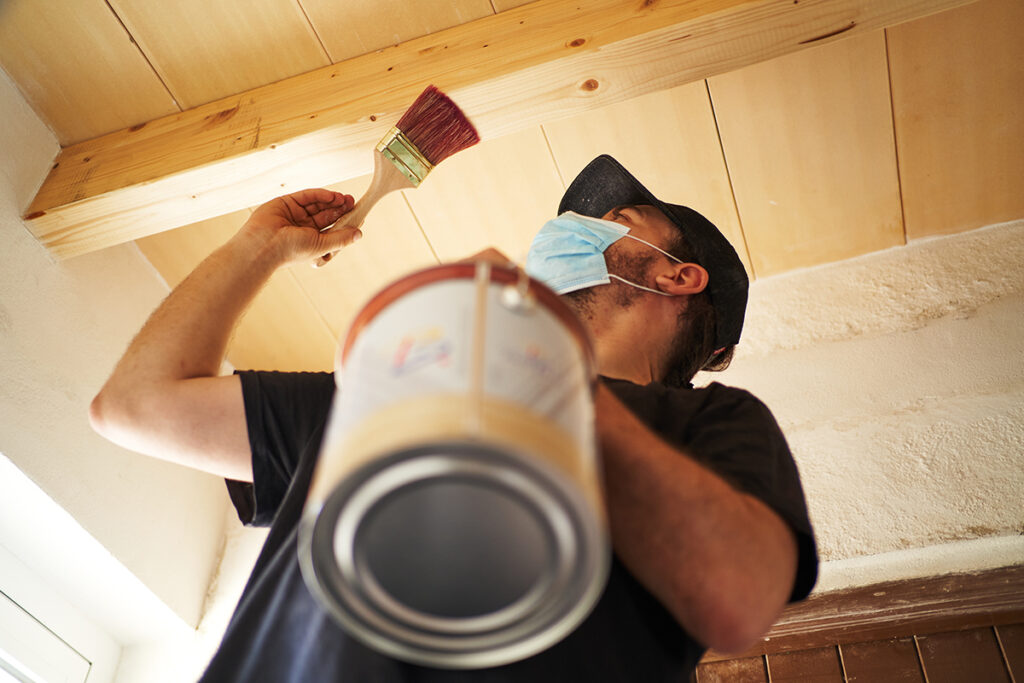
One of the biggest surprises for first-time homebuyers is often the amount of maintenance required to keep a home running smoothly. From the continuous upkeep, the associated costs, and the feeling that the tasks never seem to end, maintenance can be an unexpected challenge.
According to a survey, about 32% of buyers experienced buyer’s remorse, particularly those who found their new home needed more work or maintenance than anticipated.
“Everything breaks down,” recalls homeowner Wilma about her first few months in her new home. “The washing machine was broken, water leaked through our sliding door when the snow melted, and the worst part was when the driveway collapsed into a 3-foot hole.”
Amy, a local real estate agent (and friend of mine), pointed out that “things happen, even with well-maintained homes.” She emphasized that these costs can quickly add up, especially if you need to hire professionals for repairs rather than tackling them yourself.
The level of maintenance required varies depending on the type of home. For example, condos generally require less upkeep because homeowners associations handle exterior maintenance, landscaping, and shared spaces. Condo owners typically only need to maintain and repair appliances and the interior of their unit.
As a homeowner, you’ll quickly learn how fast grass can grow, why cleaning your gutters regularly is essential, and how to unclog a drain.
“Taxes will go up, as will insurance,’’ wrote Donna in Carrollton, Texas. ”It’s a given. Make sure you can afford MORE THAN you are approved for, as even with a fixed rate mortgage, costs will increase steadily — and often quicker than you may be prepared for.”
Home buyer tip: Pay attention to your escrow statement both at closing and as you make payments over time. The escrow accounting that comes with your statement shows you the share of your mortgage payment that is going to things other than paying for your home.
2. The fluctuating costs of property taxes and homeowners insurance.

When you purchase a home with a fixed-rate mortgage, you might assume that your initial mortgage payment will stay the same throughout the life of the loan. However, this monthly payment typically includes property taxes and insurance, which your mortgage servicer collects into an escrow account and pays on your behalf. These costs can and often do change over time.
3. The potential benefits of tax write-offs.

Clark recognized the costs and time involved in maintaining a home, but he also highlighted the significant advantages, such as the freedom of not having a landlord and the tax benefits of homeownership.
“One of the biggest perks is being able to write off mortgage interest on your taxes,” he shared. “Plus, there’s the freedom! No landlords dictating how you should live, and you have the liberty to make changes to your home (within reason).”
For more details on the potential tax benefits of homeownership, check out our guide on Tax Breaks for Homeowners.
4. The impact neighbors can have on your quality of life.

No matter how much you love your home, the quality of life there can be greatly enhanced or severely affected by the people living around you.
“Get to know the neighbors!” advises my friend Karen. “Don’t just do a quick drive-by—take the time to walk through the neighborhood, talk to people, and visit with them. There’s nothing worse than buying your dream home only to find it’s surrounded by a nightmare!”
Marcus shares a similar sentiment: “Before you buy, meet the neighbors! They can make or break your experience and even influence the value of your home.”
Karen adds, “For me, it’s all about the neighbors. It’s not just the neighborhood itself, but who you’ll see and hear every time you step outside.”
Consuelo was fortunate to end up with “great neighbors who are always willing to say hello or help when needed,” which has significantly improved her living experience.
Homebuyer Tip:
Make sure to visit the home and neighborhood at different times of the day when neighbors are likely to be active. Whether you’re a night owl or an early riser, take note of the noise levels during evenings and mornings.
5. The amount of knowledge required to maintain a home.
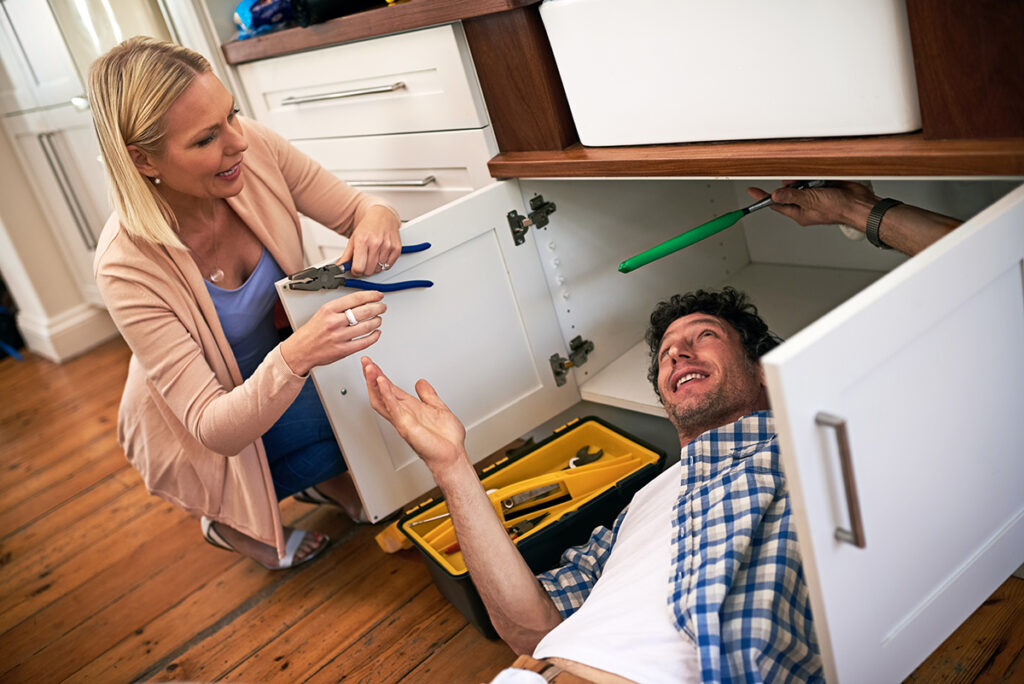
Remember when something broke, and you could just call the landlord or property manager to handle the repair? Now, that responsibility falls on you. Consider all the things that make your home comfortable and functional: heating and air conditioning systems, appliances, clear sewer lines, and leak-free plumbing. When something goes wrong, it’s up to you to either fix it yourself or hire someone to do the job.
“Get to know your house,” advises Gabby. “Understand how the sprinkler system works, where the water and gas shut-off valves are, and how to maintain the hot water heater and water softener. Learn to handle basic repairs.”
Abigail adds more to the list: “Be aware of the costs of utilities, tax bills, and potential tax increases, as well as the expenses involved in maintaining a yard or pool. Also, consider the costs of addressing hazards like lead paint, asbestos, and radon, or repairing a sea wall if your property has one.”
Homebuyer Tip:
Before purchasing a home, ensure it undergoes a thorough inspection to minimize unexpected issues. Create a budget for potential repairs and renovations, and plan for the unexpected by pricing out any upgrades you might want to make.
6. The relatively stable monthly living costs, even in a fluctuating real estate market.
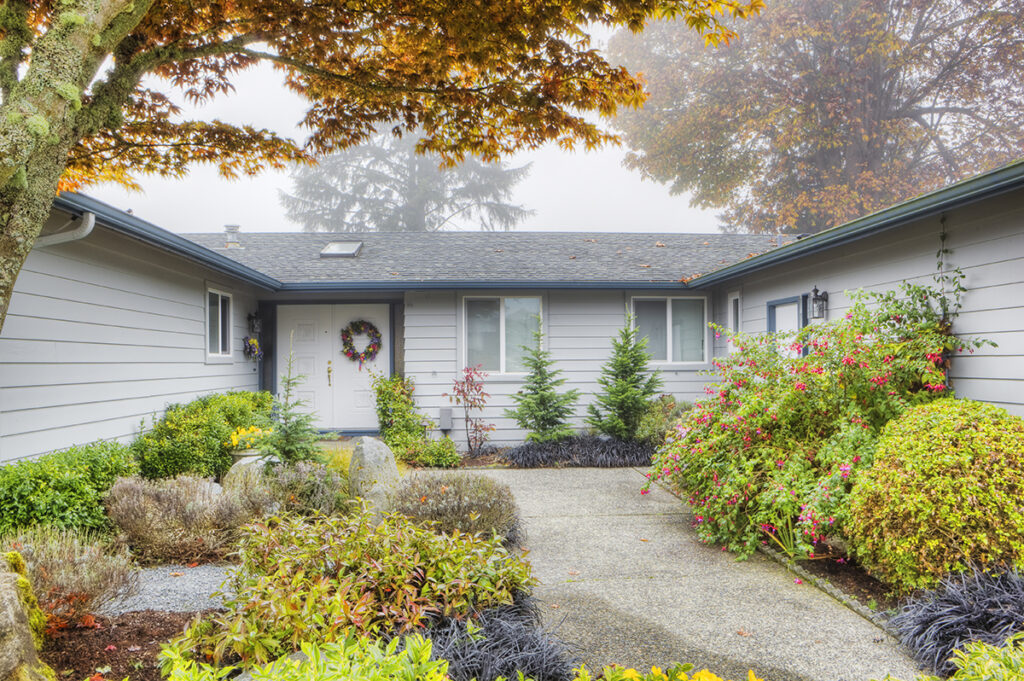
Rose shared that purchasing her home has been the best investment she’s ever made.
“When the stock market drops, your money can vanish, and you have to wait for the market to recover to regain what you lost, often while paying fees to someone managing your investments,” she explained. “In contrast, if the housing market dips, you still have a place to live. Unless you’re in a hurry to sell, you haven’t really lost anything because it’s still your home. While there is maintenance involved with any property, unlike cars, a home’s value will appreciate over time rather than depreciate.”
7. How external factors can influence your property.
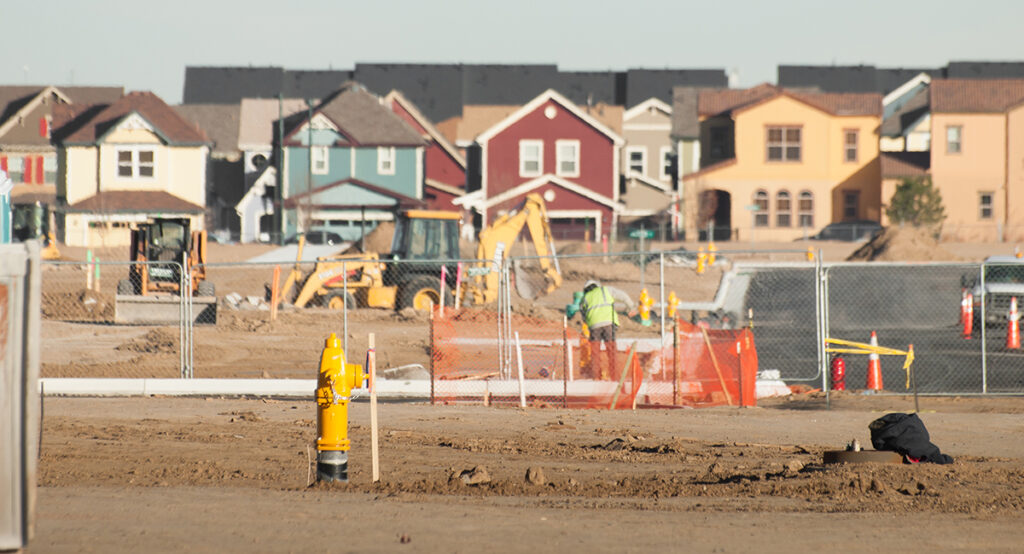
Various factors can influence what you’re able to do with your home. If you live in a subdivision governed by a homeowners association (HOA), you’ll need to be aware of the rules regarding what you can and can’t do with your property. Additionally, county zoning laws or local projects could impact the character of your neighborhood.
Maya from Lewisville, shared her experience: “Be sure to thoroughly review the entire property and what it involves. We didn’t realize we had pipelines on our land, or that we couldn’t build a shed, or that they could remove our trees at any time. It’s important to be very, very careful.”
Cassandra in Wylie, Texas, emphasized the importance of considering adjacent properties: “If the property borders anything other than a road or other residential areas, examine it closely! Abandoned railroad tracks, a cornfield, an empty lot—anything with the potential to change could impact your home life.”
Homebuyer Tip:
Conduct thorough research on the property and surrounding areas and ask questions.
8. Maintenance isn’t a one-time task, some things require regular upkeep.
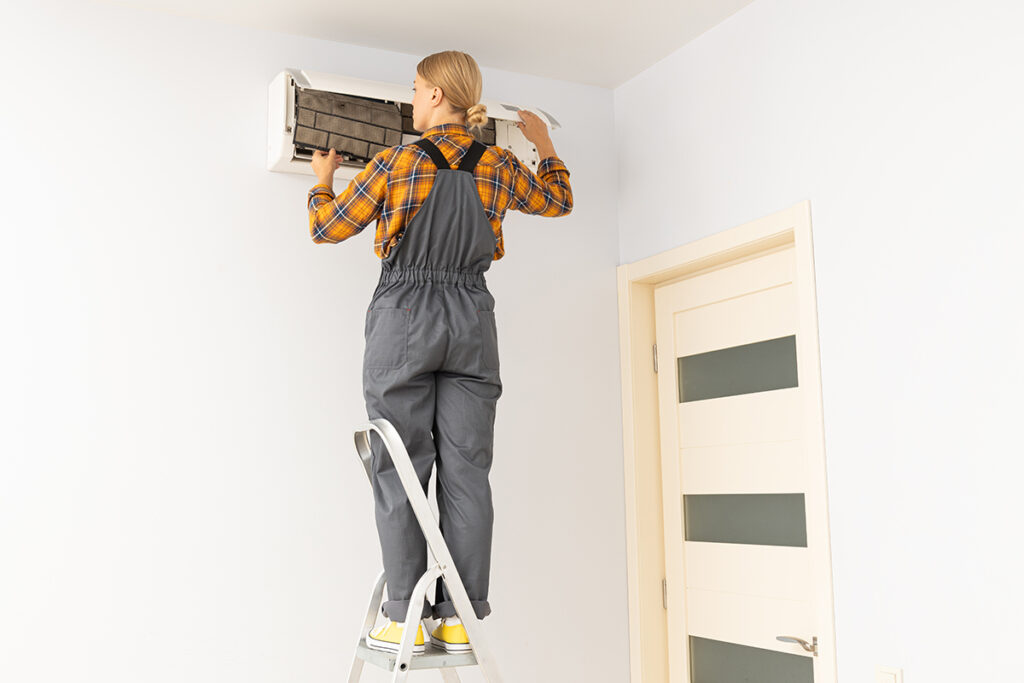
Certain systems in your home require regular inspections and maintenance. Homeowners often highlight these essential tasks:
“You should have your furnace and air conditioning serviced every year,” advises Madison.
“Don’t forget to drain your water heater annually and check the anode rod. If you have a private septic system, it’s important to learn how to maintain that as well. Remember, your house needs to breathe, your plumbing pipes have vents. Make sure to clean out your dryer vents and keep a fire extinguisher handy, just in case,” adds Sophia.
Rebecca emphasizes the importance of staying proactive: “It’s crucial to maintain your home on a regular schedule, though it’s not always easy. Clean your gutters, keep an eye on your roof, and know when it’s time to paint the exterior or replace rotting wood.”
Homebuyer Tip:
Keep a calendar to track scheduled maintenance tasks and stick to it. Check out our monthly maintenance checklist to help you get started.
9. Understanding the quirks of your home.

There’s a unique comfort in getting to know your home over time. Much like a car you’ve driven for years, your house will start to “communicate” with you when something needs attention.
Homeowner Hayden suggests that you “Listen to your home. Learn what the ‘normal’ sounds are and what might indicate a problem. It can take a few years to understand these patterns.”
Hayden also pointed out that each season brings its own challenges. For example, he discovered that two pipes in his home are prone to freezing when temperatures drop below 20 degrees. During winter, he keeps an eye on the forecast and prevents freezing by opening cabinet doors and letting a small stream of water run through the pipes overnight.
10. Remember, even if a problem existed before you moved into your condo, you’re still responsible for the repairs.
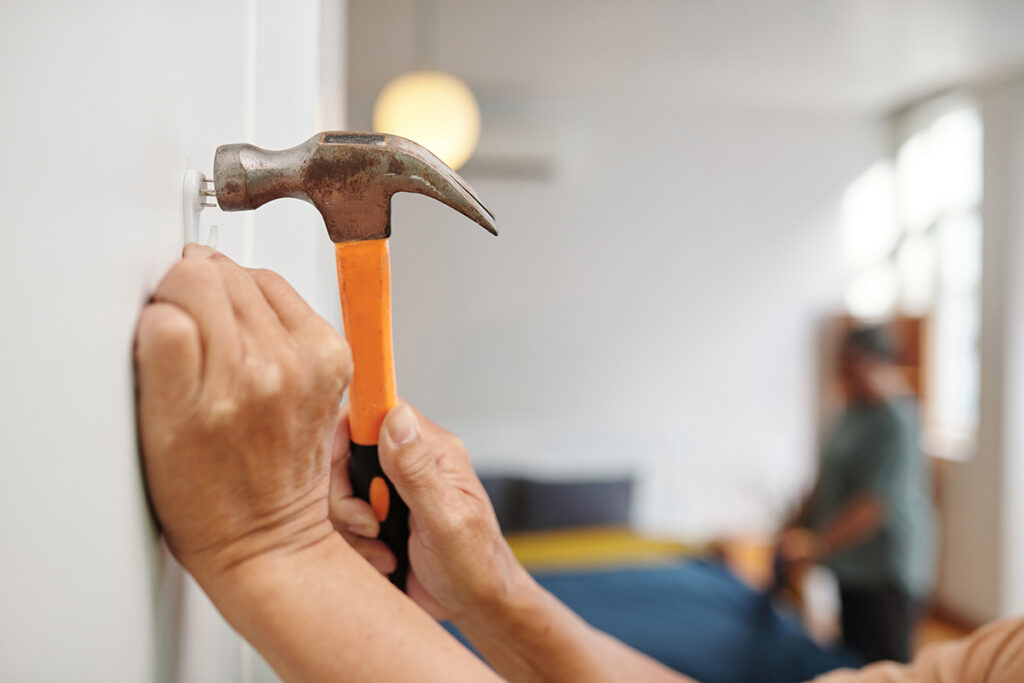
David thought he was leaving behind all the maintenance headaches when he sold his single-family home of 42 years and moved into a condo. However, he quickly discovered that the building’s upkeep had been neglected, and he was hit with a special assessment to cover maintenance that should have been done long before he purchased the condo.
Homebuyer Tip:
Work with a real estate agent who has experience with condos to guide you through the process. Make sure to thoroughly review all the details before signing a contract. Request to see the HOA’s meeting minutes and carefully examine their financial statements.
11. The unexpected attachment you develop for your home and the joy of making improvements.

Live in a place long enough, and it becomes more than just a house, it’s filled with memories and emotions. Parting with those memories can be tough, especially when you’ve put your own efforts into improving the space, leaving you with a deep sense of accomplishment.
“It’s surprising how much you can obsess over something you’ve changed,” wrote Ula. “You replace a faucet with one you like better, and suddenly it’s, ‘I did that! Wow, it’s so much better.’ You might think it’s just a faucet, but then you realize the new one makes it easier to wash your hands without bumping the sink, and you can fill a glass of water without awkwardly tilting it. As small as it seems, it’s worth getting excited about.”
Ula also adds, “You may fall in love with your home and find it incredibly hard to leave when the time comes to sell—that’s both the good news and the bad news.”
The thought of someone else creating their own memories in the space you once cherished can be difficult for some. “When you sell,” wrote Penny, “all those wonderful memories that are priceless to you don’t really add to the value of the house. Someone is just going to paint over them and start making their own memories.”
12. The deep satisfaction of knowing that it’s truly yours.

Wendy summed up her feelings after adding shade trees, an orchard, archways over entryways, hunting down deals at estate sales and end of season bargains to improve her yard and ability to entertain at home: “Every improvement you make,’’ she wrote, “you can stand back and proudly know ‘It’s yours!!!”
